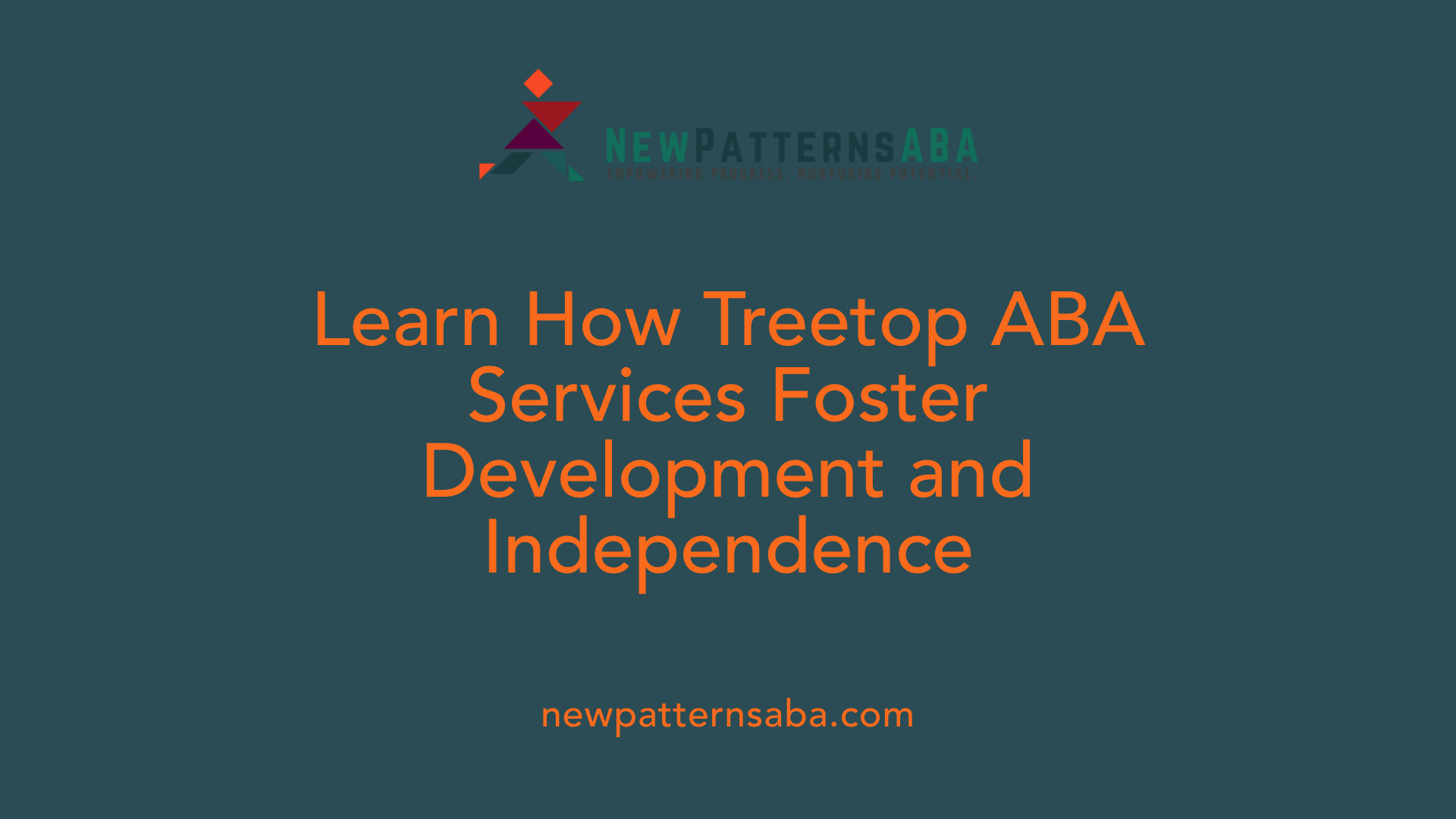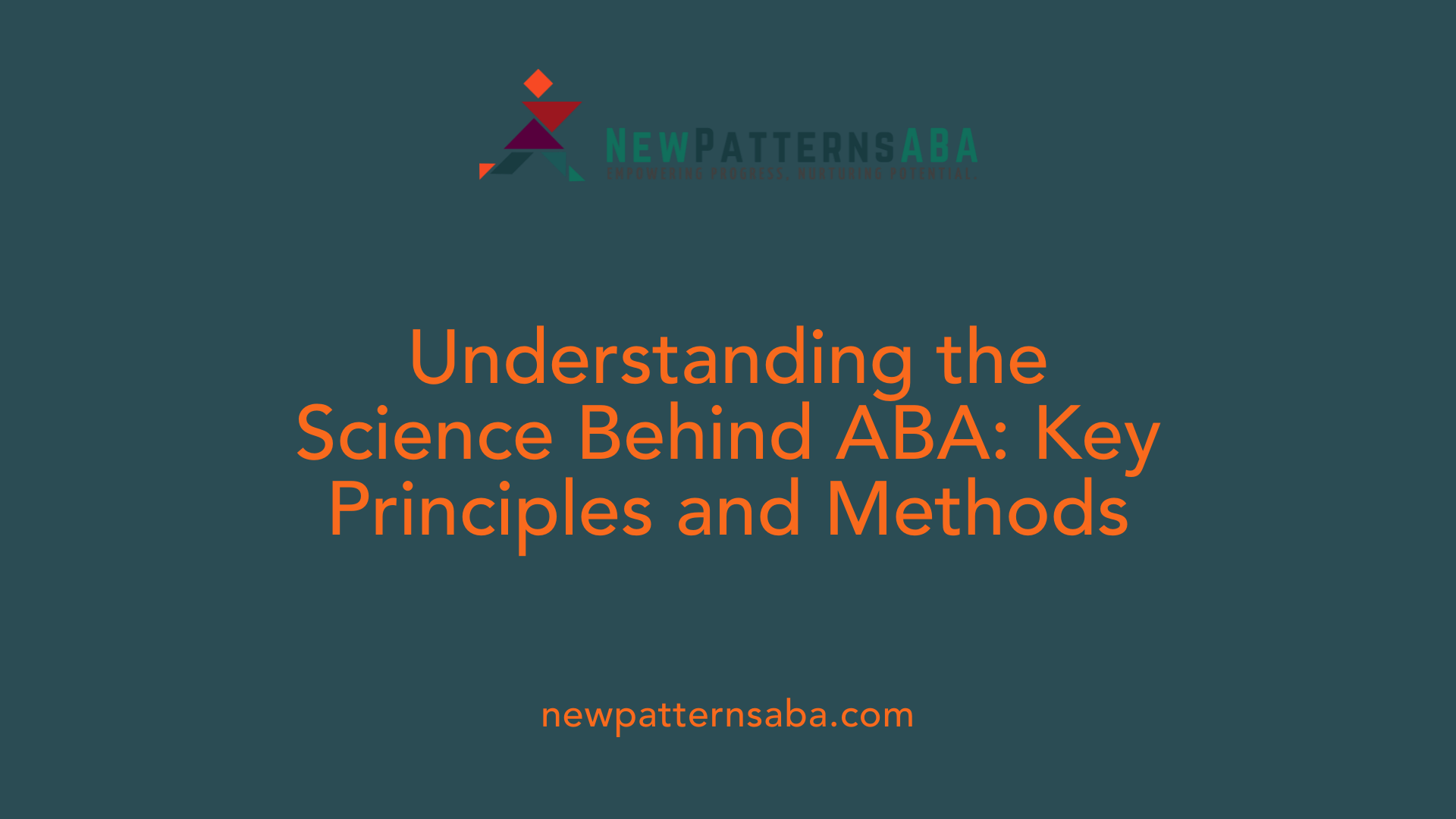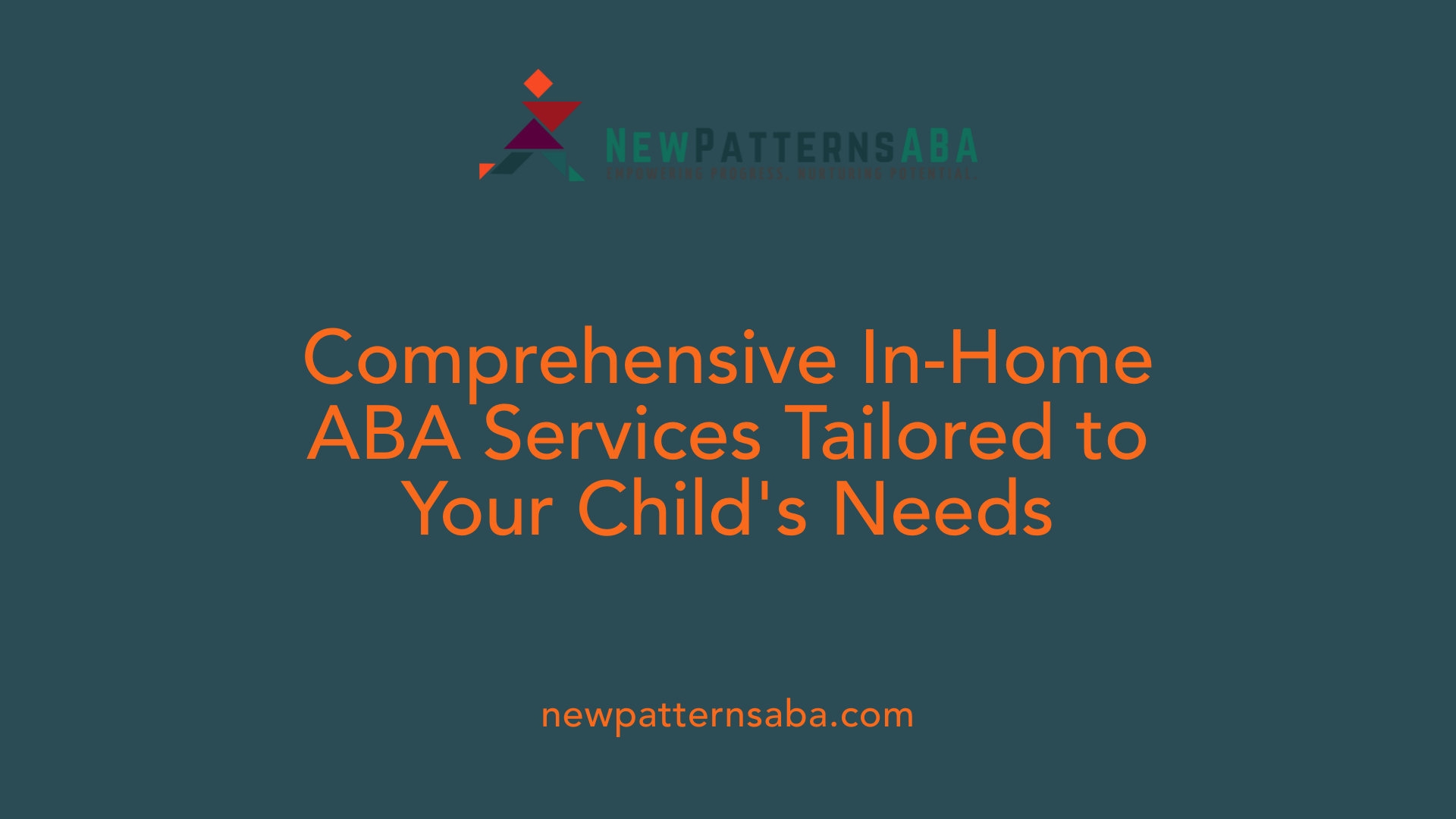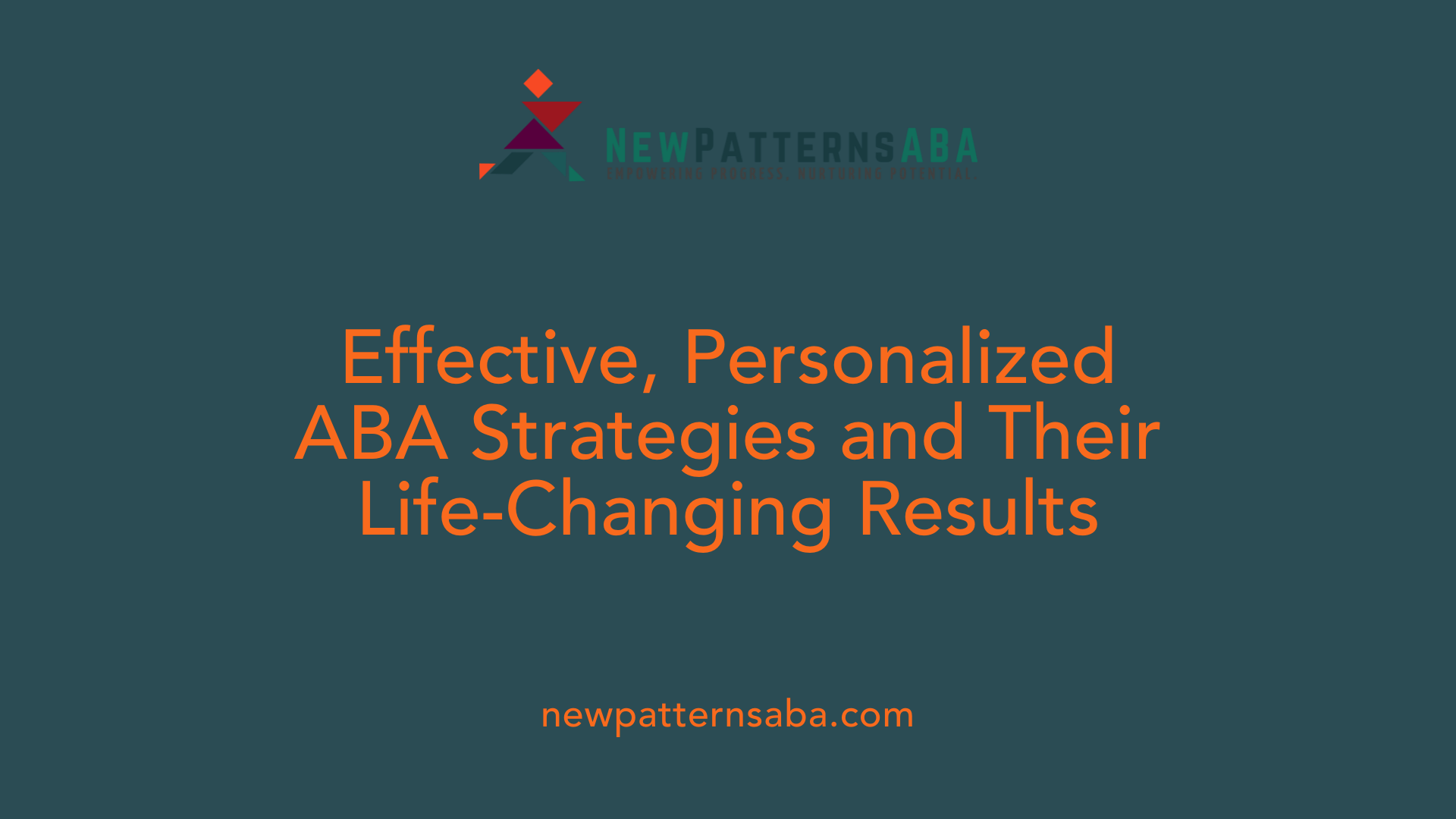Understanding Treetop ABA Therapy: A Science-Backed Approach to Autism
Treetop ABA Therapy provides in-home Applied Behavior Analysis (ABA) services tailored to children and young adults with autism spectrum disorder (ASD) and other developmental disabilities. Grounded in scientific principles, Treetop emphasizes individualized, evidence-based interventions designed to foster meaningful progress in various life skills.
What Is Treetop ABA Therapy?

Overview of Treetop ABA services
Treetop ABA Therapy specializes in providing Applied Behavior Analysis (ABA) services to support children and young adults with autism spectrum disorder (ASD) and other developmental disabilities. ABA is a proven, science-based approach that uses behavioral principles like positive reinforcement and functional analysis to promote meaningful change. Treetop's programs are tailored to individual needs, focusing on skill-building in communication, social interaction, attention, and academics while decreasing challenging behaviors.
Target age range and locations
Treetop ABA services are available for children aged 2 to 18 years old. The company provides in-home therapy sessions, which means children can receive personalized support within their own living environments. Treetop operates primarily within New Mexico, offering accessible ABA services to families across the state.
Key features of their therapy approach
The therapy approach at Treetop emphasizes personalized program design, overseen by qualified professionals like board-certified behavior analysts (BCBAs). Therapists work one-on-one with children to teach vital life skills, emotional regulation, play, and social integration.
Treetop uses evidence-based techniques such as shaping, chaining, and changing environmental stimuli to reinforce desired behaviors and reduce obstacles to learning. The therapy process involves careful observation, measurement, and continual program evaluation to ensure progress. Notably, the therapists apply consistent positive reinforcement strategies, rewarding behaviors that contribute to overall development.
Overall, Treetop ABA Therapy applies a comprehensive, scientifically supported methodology to foster growth and independence in children with ASD. Families interested in these services can verify coverage with insurance providers or explore local options through the company's resources and recommendations.
Foundations and Principles of ABA Therapy
 Applied Behavior Analysis (ABA) therapy is rooted in the scientific understanding of learning processes and behavior. Its main focus is to analyze how environmental factors influence actions and to modify these factors to promote positive change.
Applied Behavior Analysis (ABA) therapy is rooted in the scientific understanding of learning processes and behavior. Its main focus is to analyze how environmental factors influence actions and to modify these factors to promote positive change.
One of the key principles of ABA is that behaviors are functionally motivated. That is, actions serve specific purposes, such as seeking attention, escaping an undesired task, obtaining tangible rewards, or seeking instant gratification. Recognizing these functions helps therapists craft effective strategies.
ABA uses several methods to shape behavior. For example, analyzing the antecedents (what happens before the behavior), the behavior itself, and the consequences (what follows) helps identify patterns and causes. The famous A-B-Cs model is fundamental in understanding this relationship.
Interventions are personalized to meet each individual’s unique needs. Therapists design programs that include techniques like positive reinforcement—rewarding desired behaviors to encourage their recurrence. Other methods include chaining (breaking down complex tasks into smaller steps), modeling (demonstrating desired behaviors), prompting (giving cues), and fading (gradually removing prompts as independence grows).
More advanced methods involve task analysis, which breaks complex skills into manageable parts, and data collection, ensuring progress is measurable and adjustments are data-driven.
The main goals of ABA are to help individuals develop essential skills and reduce problematic behaviors. These skills include communication, social interaction, self-care, and academic abilities. By encouraging these abilities, ABA aims to increase independence and improve overall quality of life.
Overall, ABA is an evidence-based approach that combines scientific principles with tailored interventions. It is widely used to support individuals, especially children with Autism Spectrum Disorder (ASD), in reaching their full potential through structured, engaging, and personalized therapy programs.
Services Offered by Treetop ABA Therapy
 Treetop ABA Therapy specializes in providing in-home Applied Behavior Analysis (ABA) services tailored to children and young adults with autism spectrum disorder (ASD). Their offerings are designed to support various developmental stages, ranging from early childhood (0-3 years old) to adulthood.
Treetop ABA Therapy specializes in providing in-home Applied Behavior Analysis (ABA) services tailored to children and young adults with autism spectrum disorder (ASD). Their offerings are designed to support various developmental stages, ranging from early childhood (0-3 years old) to adulthood.
The therapy programs are personalized for each client, focusing on improving essential skills such as communication, social interaction, daily living, and emotional regulation. Treetop's team of qualified therapists work closely with families, conducting behavioral assessments and implementing individualized plans. These plans often include skill development, behavior reduction, and training for parents to reinforce progress at home.
Their services span across various age groups, including preschoolers, elementary, middle, and high school students, as well as adults. This comprehensive approach ensures continuous support throughout different life phases, promoting independence and social integration.
To facilitate effective progress, Treetop offers parent training sessions, coaching, and ongoing program evaluation to adapt to each child's evolving needs. They emphasize a scientific, evidence-based approach, utilizing ABA principles like reinforcement and skill chaining to foster meaningful behavioral changes.
For more information or to schedule services, families can contact Treetop ABA Therapy by phone at 405-874-5850, email at Mo@thetreetop.com, or visit their website here. Their physical location is situated at 629 W Main St, Oklahoma City, OK 73102-2221.
Treatment Approach and Its Impact

How does Treetop ABA Therapy approach treatment and what is its impact?
Treetop ABA Therapy uses evidence-based strategies designed to produce meaningful and lasting behavioral changes in children with Autism Spectrum Disorder (ASD). This approach is rooted in the science of learning and behavior, focusing on customizing programs to fit each child's unique needs.
Individualized treatment plans
Each child receives a tailored treatment plan developed and overseen by qualified professionals like Board Certified Behavior Analysts (BCBAs). These plans focus on enhancing communication, social skills, self-care, play, motor skills, and academic abilities. The program continuously evolves based on regular assessments and progress reviews, ensuring that interventions are always aligned with the child's development.
Methods and techniques employed
Treetop ABA employs a variety of proven techniques, including positive reinforcement, shaping, and chaining. Positive reinforcement involves rewarding desired behaviors to increase their occurrence. Shaping helps by reinforcing approximate behaviors toward a goal, gradually guiding children to more complex skills. Chaining breaks down complex tasks into manageable steps to facilitate learning.
The therapy also emphasizes the analysis of environmental factors—understanding antecedents (what prompts behavior), behaviors themselves, and consequences (what follows)—to modify surroundings and support successful learning. Direct observation and functional analysis help therapists identify triggers and tailor interventions effectively.
Expected outcomes and benefits
The goal of ABA therapy is to strengthen helpful behaviors while reducing problematic or non-learning behaviors. Children often see improvements in language, communication, attention span, social skills, and academic performance. Enhanced emotional regulation and self-help skills are also common outcomes.
Research supports the effectiveness of early, intensive ABA therapy, which can lead to significant life improvements. Parental involvement, consistent therapy, and personalized programs maximize these benefits, empowering children to reach their full potential.
| Aspect | Approach | Objectives | Techniques Used | Expected Results |
|---|---|---|---|---|
| Personalization | Custom treatment plans managed by BCBAs | Address unique needs of each child | Positive reinforcement, shaping, chaining | Improved communication, social, and daily living skills |
| Technique Focus | Evidence-based methods | Promote skill acquisition and reduce barriers | Antecedent manipulation, reinforcement | Increased independence and quality of life |
| Environmental Approach | Modifying environment | Support successful behavior change | Functional analysis, environmental changes | Long-term behavioral improvements |
Understanding ABA Therapy for Children with Autism
What is ABA therapy for children with autism?
Applied Behavior Analysis (ABA) therapy is a scientifically supported approach designed to help children with autism develop crucial skills and reduce behaviors that hinder learning or social interaction. It is personalized to meet each child's unique needs, making use of proven techniques like positive reinforcement, task analysis, and naturalistic teaching strategies such as Pivotal Response Treatment and the Early Start Denver Model.
Typically, a trained professional like a board-certified behavior analyst oversees ABA programs. These programs involve intensive and long-term sessions tailored to foster improvements in communication, social skills, self-care, play, and academic abilities. During therapy, goals are broken into small, manageable steps. Therapists then systematically reinforce progress, encouraging children to learn and practice new skills.
Research consistently supports the effectiveness of ABA. Studies have demonstrated that children receiving ABA show significant gains in language development, cognitive abilities, social interaction, and overall daily functioning. By altering the environment and using behavioral principles, ABA helps children with autism better understand social cues, communicate effectively, and participate more fully in everyday activities.
Building Long-Term Skills and Independence
Treetop ABA Therapy exemplifies a personalized, scientific approach to supporting individuals with autism. By leveraging proven techniques rooted in behavior analysis, they help children and young adults develop critical skills, reduce barriers to learning, and gain greater independence. Early intervention and consistent, individualized therapy foster lasting positive outcomes, empowering individuals to reach their full potential and improve their overall quality of life.
References
- Applied Behavior Analysis (ABA) | Autism Speaks
- The Treetop ABA Therapy - New Mexico Disability Resource FINDER
- Cornwall - ABA Therapy Services
- ABA therapy vs occupational therapy - Ability Innovations
- Applied Behavior Analysis (ABA) | Autism Speaks
- The 7 Dimensions & Core Principles of ABA
- [PDF] Principles of Applied Behavior Analysis - PaTTAN
- ABA Therapy Examples, Definition & Techniques
- ABA Techniques: Strategies for Behavior Analysts - GSEP Blog





